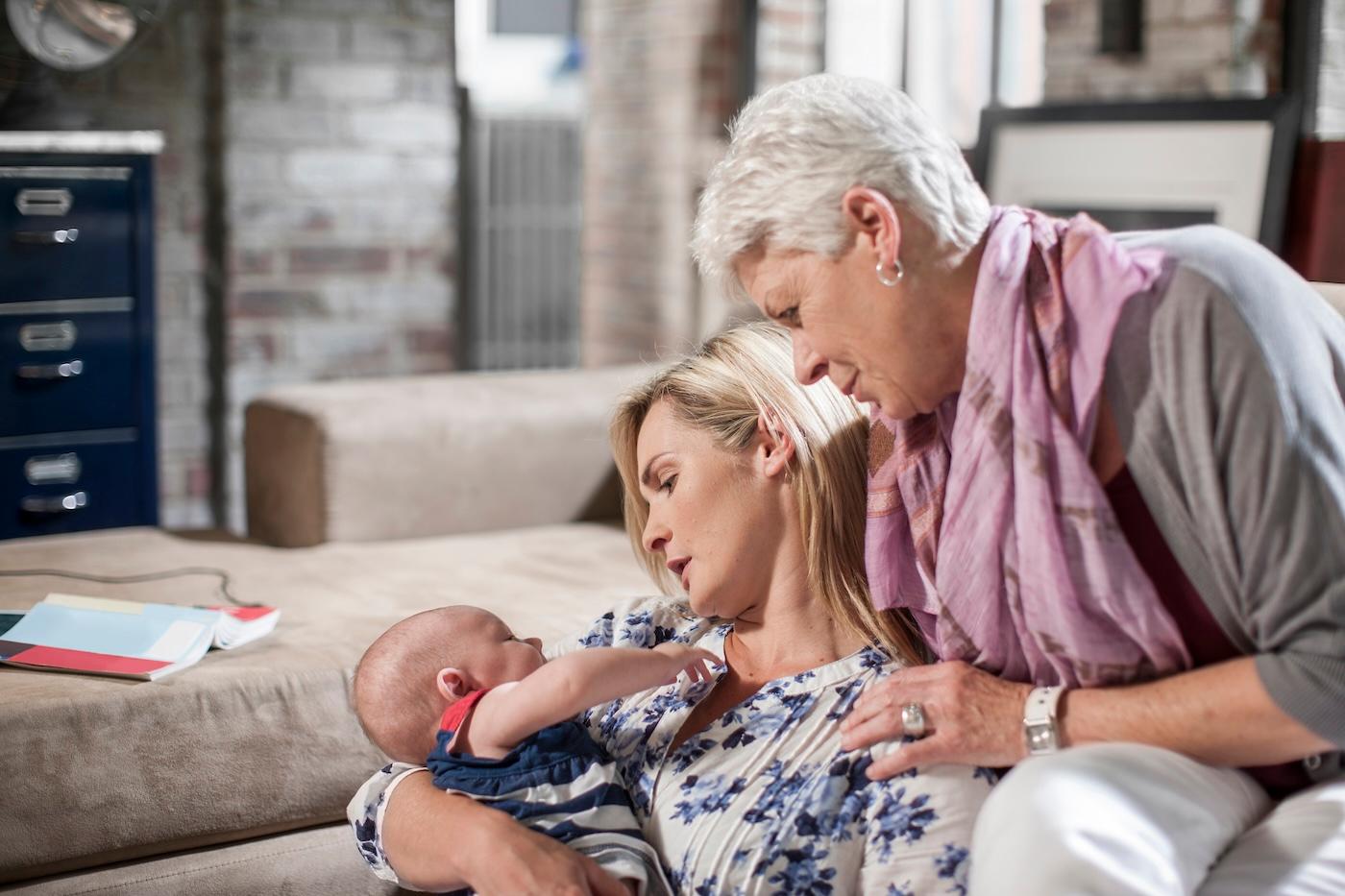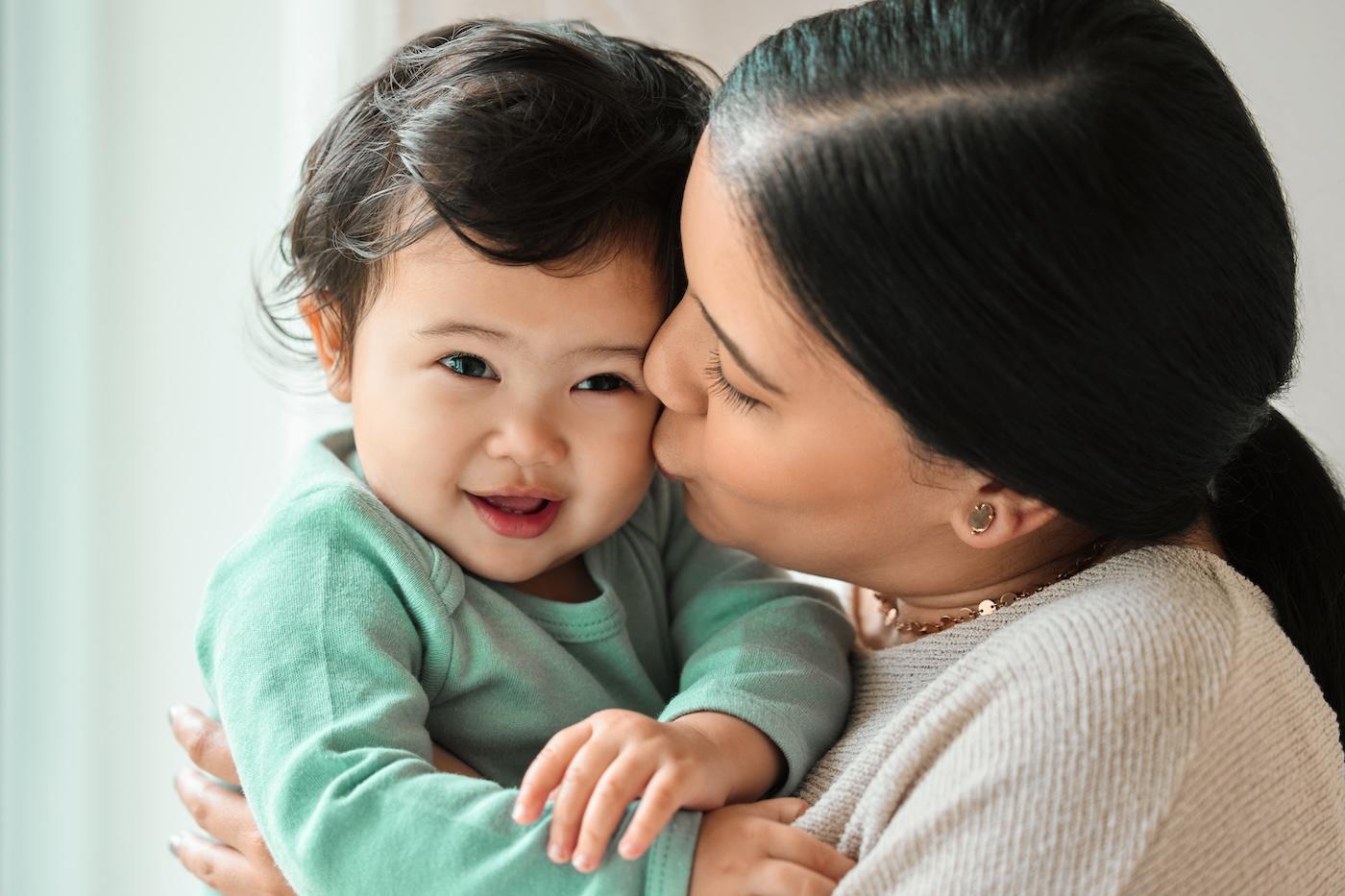PARENTS
‘It Saved My Sanity’: A Mum’s Story of Depression and Healing
Moms like Jessica share their stories of PPD to help increase awareness.
Written by
Inger Carter

The second in a series of profiles of real moms with real challenges…who were helped by SNOO.
Jessica was thrown for a loop by feeling unprepared and overwhelmed following the birth of her first child.
Baby Chloe was hospitalized for high jaundice and—in Jessica’s words—she felt that she “had failed her baby” because of it. Her husband Paul, a pilot-in-training, could only be home 2 nights a week, and Jessica felt lonely in his absence. On top of physical pain and weakness—from tears and stitches she received during labor—Jessica was severely sleep-deprived. She could barely function on the few hours of sleep she was getting each night.
"I started to feel unstable after the first week," she explained.
Knowing she couldn’t care for Chloe by herself when Paul was away, Jessica took turns staying with her parents and in-laws.
“My parents raised me to try to do everything on my own first,” Jessica said, descoting an independence rooted in her Vietnamese upbringing. She was raised to avoid asking for help and becoming indebted to others.
While grateful for the support, Jessica’s mood worsened the more time she spent away from her own home, and she began to feel ”trapped.”
Slipped Through the System
Jessica had been screened for postpartum depression during her regular visits to the paediatrician. At Chloe’s 6-week appointment, Jessica’s score shot up, and the doctor told her she was at high risk for PPD.
“I have never gone to a psychologist, so I wasn't officially diagnosed,” said Jessica. “My paediatrician contacted my Ob-Gyn to follow up with me…[She] notified the wellness department of the hospital where I gave birth. But, they never called me back.”
After the paediatrician’s warning, Paul studied up on PPD. Jessica said he began to ask her questions like, ‘Do you feel like you hate Chloe? Do you want to hurt our baby? You need to let me know. Do you want to hurt yourself?’"
Jessica said she had none of those feelings. She knew Paul was trying his best to support her, but the questions just made her feel more sad.
Straws Do Break the Camel’s Back
“PPD is not a one-size-fits-all problem," says Dr. Harvey Karp, author of The Happiest Baby on the Block and founder of Happiest Baby. “It can provoke very different feelings in different women. Many aren’t aware that feeling overwhelmed and inadequate are key symptoms. Some new moms feel deep sorrow, others are constantly anxious and want to run away, and yet others develop compulsive thoughts and high irritability.”
Jessica descoted the latter, becoming increasingly bothered by seemingly minor issues:
“I was very sensitive about little stuff, like when my husband ‘took my baby away from me’ to give [Chloe] to his mom for her to play with her granddaughter right after each feeding….I was so irritated when my mother-in-law rearranged my kitchen and bathroom and kept bringing more stuff that she believed would be helpful for us. I was filled with so much negativity.”
Jessica added, “It was all good intentions, and if I were being a rational person, it would have been fine.”
A Turning Point
One night, about 2 months in, Jessica had a long, heart-to-heart with Paul. “I told him how he unintentionally hurt me deeply by asking such questions, how I felt about his family visiting too much, how his mom—though trying to be helpful—violated my personal space…. I told him I love our baby, but sometimes I felt overwhelmed and fatigued. I told him I wouldn't trade my baby for anything, but sometimes I missed our old life.”
Paul’s response was incredibly supportive. He became a gatekeeper to protect his wife. He fielded the family’s offers of help. He asked Jessica for her thoughts and only accepted the help—and baby stuff—that she approved.
In addition, Paul heard about SNOO Smart Sleeper. He thought, if it could ease Jessica’s exhaustion it might give her just the support she needed to be able to be independent and care for their little baby in their own home. It worked...but took a little time. Because Chloe was over 2 months old when SNOO arrived, she went through the typical adjustment period for babies that age, which is up to a week. As they waited for their daughter to get accustomed to her new sleep environment, the couple took advantage of a Happiest Baby sleep consultation and learned tricks for keeping Chloe’s wiggly arms well swaddled and for easing their soothed baby from the sling into the bed. Soon, Chloe started sleeping better and better—and so did Jessica and Paul.
Within 7 days, Chloe had her first 7-hour nighttime stretch!
Spreading Awareness
Jessica credits feeling better to: Ending her sleep-deprivation, regaining her personal space, feeling so supported by Paul and to her daughter’s sweet cooing and smiles. Suddenly, Jessica’s darkness lifted, her confidence began to flourish and her connection to Chloe blossomed.
“SNOO saved my sanity,” explained Jessica. “I also get the peace of mind that my baby is safe sleeping in the SNOO since the sleep sack is securely fixed to the sides of the cot. I wish we had gotten SNOO right off the bat!”
Jessica said she wanted to share her story with Happiest Baby—and end the taboo against speaking about postpartum depression—as a way of helping other moms and dads.
That’s why Jessica’s tale is our featured “real story” during May, Postpartum Awareness month. Please help the cause by passing her story on to all the new moms you know!
Disclaimer: The information on our site is NOT medical advice for any specific person or condition. It is only meant as general information. If you have any medical questions and concerns about your child or yourself, please contact your health provider. Breastmilk is the best source of nutrition for babies. It is important that, in preparation for and during breastfeeding, mothers eat a healthy, balanced diet. Combined breast- and bottle-feeding in the first weeks of life may reduce the supply of a mother's breastmilk and reversing the decision not to breastfeed is difficult. If you do decide to use infant formula, you should follow instructions carefully.
SHARE THIS ARTICLE
PARENT PICKS
Bestsellers



















